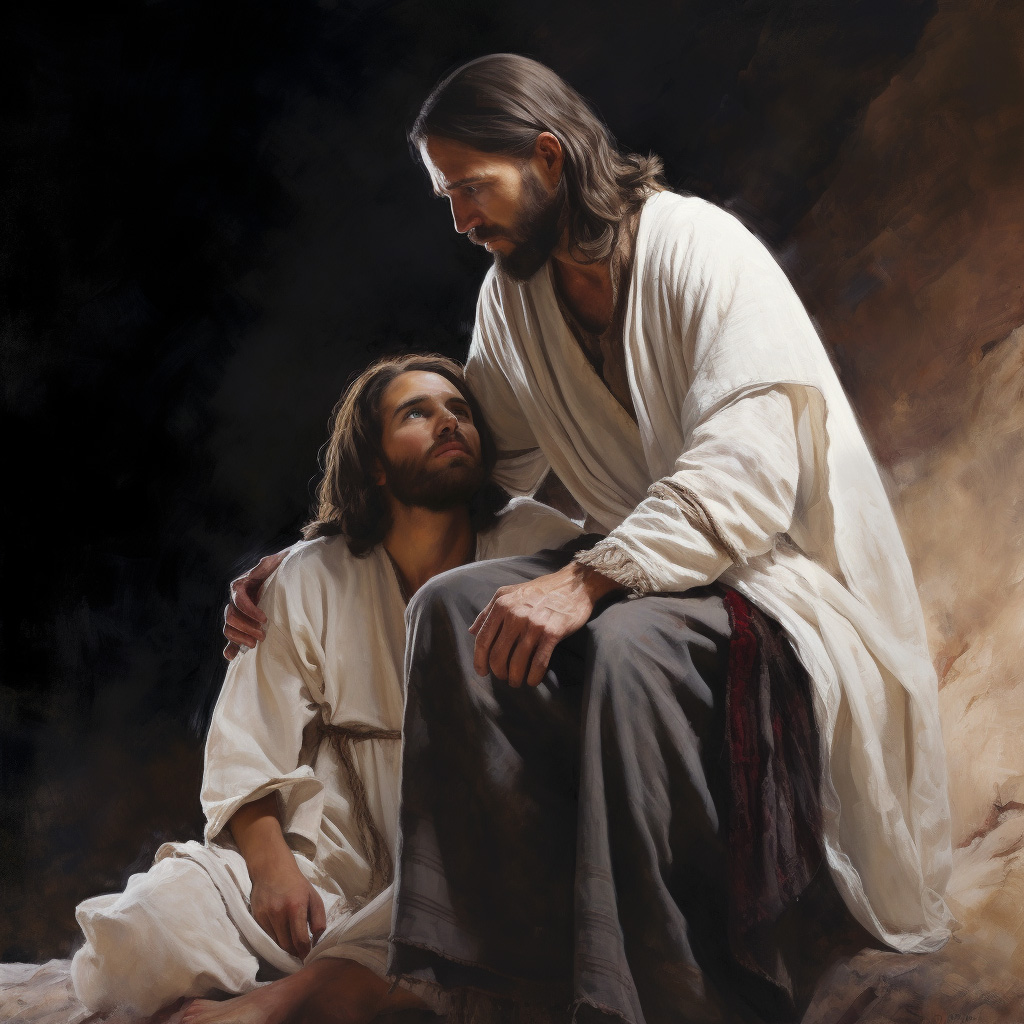
Forgiving offences – Fifth Spiritual Work of Mercy
The Works of Mercy through the eyes of a biblical scholar
A meeting is currently underway in Lucca for a fortnight aimed at building useful tools for the dissemination of the Works of Mercy. Thanks to the contribution of biblical scholar Carlo Miglietta, we continue our analysis of the works.
The fifth Work of Spiritual Mercy is “forgiving offences”

The biblical scholar points out to us that he who performs this work is similar to:
- God: “I am the Lord, the merciful and gracious God” (Ex 34:6; Ps 100:5; 136; Eph 2:4); “You are a God who is ready to forgive” (Ne 9:17); “He forgives all his sins” (Ps 102:3); “What god is there like you, who forgives sin …, who delights in using mercy?” (Mi 7:18); “I blot out your misdeeds …, and I remember your sins no more! ” (Is 25:7; cf. Jer 31:34); “As the east is far from the west, so he removes our sins from us” (Ps 108:8-13); “God…will trample down our sins and cast all our sins into the depths of the sea” (Mi 7:19); “Even if your sins were like scarlet, they will become white as snow. If they were red like crimson, they will become like wool” (Is 1:18); “I have dispelled…your sins like a cloud” (Is 44:22).
- Jesus: “Woman, has no one condemned you? Neither do I condemn you! Go and sin no more! ” (Jn 8:10-11); “Jesus … said to the paralytic, ‘Your sins are forgiven you'” (Mk 2:5-12); “God demonstrates his love for us because, while we were still sinners, Christ died for us” (Rom 5:6-8); “I did not come to call the righteous, but sinners” (Mt 9:13); “I did not come to condemn the world, but to save the world” (Jn 12:47); “May I lose nothing of what the Father has given me” (Jn 6:39); “The Son of Man came to seek and to save what was lost” (Lk 19:10); of his crucifiers Jesus says: “Father, forgive them, for they know not what they do” (Lk 23:34).
- Joseph, son of Jacob, who was sold by his brothers, forgave them (Gen 45:5).
The biblical scholar also reminds us that he who forgives offences hears the Word of God
Below some excerpts:
- “Forgive the offence of your neighbour and then…your sins will be forgiven you. If someone…has no mercy on his fellow man, how will he dare to pray for his sins?” (Sir 28:2-5; cf. Mt 18:23-35).
- “When you begin to pray, if you have anything against anyone, forgive, so that your Father in heaven may also forgive you your sins” (Mk 11:25; cf. Mt 6:14; Lk 6:37).
- “Forgive us our sins, and indeed we also forgive any of our debtors” (Lk 11:4).
- “Lord how many times shall I forgive my brother…? Up to seven times?” Jesus answered, ‘Not up to seven, but up to seventy times seven'” (Mt 18:22; cf. Lk 17:4).
- “Forgive one another as God has forgiven you in Christ” (Eph 4:31-5:2).
The biblical scholar leaves us at the conclusion of this work with a provocation, a question: do we know how to be “fishers of men” (Mk 1:7), identifying those who know how to forgive offences and proclaiming the beatitude of mercy that reads “Blessed are the merciful” (Mt 5:7)?
Mercy

The first of the Hebrew terms designating mercy is rehamin, which properly expresses the bowels, the seat of the emotions, our ‘heart’: it is a plural form of réhèm, the maternal breast, the female womb. It is the spontaneous feeling that arises from the bond of paternity, maternity or fraternity, “Joseph went out in haste, because his bowels were deeply moved with regard to his brother, and he felt the need to weep” (Gen 43:30). In his Apostolic Letter “Misericordia et misera“, at the conclusion of the Extraordinary Jubilee of Mercy, Pope Francis writes: “We are called to bring about the growth of a culture of mercy, based on the rediscovery of the encounter with others: a culture in which no one looks at the other with indifference nor turns his eyes away when he sees the suffering of his brothers and sisters. Works of mercy are “crafts“: none is the same as another; our hands can shape them in a thousand ways, and even though it is only God who inspires them and only the “material” of which they are made, that is, mercy itself, each one takes on a different form”.
Learn more about the HIC SUM project
Bibliography
![]() Carlo Miglietta – Le Opere di Misericordia
Carlo Miglietta – Le Opere di Misericordia
 Carlo Miglietta – Works of Mercy
Carlo Miglietta – Works of Mercy
 Carlo Miglietta – Oeuvres de miséricorde
Carlo Miglietta – Oeuvres de miséricorde
Read Also
Consoling the afflicted – Fourth Spiritual Work of Mercy
Admonishing sinners – Third Spiritual Work of Mercy
Teaching the ignorant – Second Spiritual Work of Mercy
Counselling the doubtful – First Spiritual Work of Mercy
Burying the Dead – Seventh Corporal Work of Mercy
Visiting Prisoners – Sixth Corporal Work of Mercy
Visiting the sick – Fifth Corporal Work of Mercy
Accommodation for pilgrims – Fourth Corporal Work of Mercy
Dressing the naked – Third Corporal Work of Mercy
Giving drink to the thirsty – Second Corporal Work of Mercy
Feeding the hungry – First Corporal Work of Mercy
The Works of Mercy from Brazil to Italy
